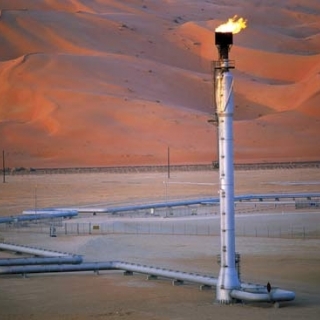


World oil prices fell again after OPEC+ announced a larger-than-expected increase in production starting next month. The group of oil producing countries led by Saudi Arabia agreed to increase supply by 548,000 barrels per day, which immediately sparked concerns about oversupply in the global market. This caused Brent oil prices to fall by 1.6% to $67 per barrel.
The decision was announced on Saturday, as part of OPEC+'s strategy to adjust production to summer demand. This increase in production is much higher than market expectations, which previously estimated an additional 411,000 barrels. The move is also considered a response to President Donald Trump's call for more affordable fuel prices.
The oil market is currently in an unstable situation due to a combination of geopolitical factors and trade policies. The conflict between Israel and Iran, although it has reached a ceasefire, still causes uncertainty. On the other hand, the new tariff policy from the US which will come into effect on August 1 also adds pressure to the outlook for global oil demand.
OPEC+ said its decision was based on a stable global economic outlook and healthy market fundamentals. However, some analysts warn that demand could decline after the summer, risking further falls in oil prices. The next OPEC+ meeting is scheduled for August 3 to discuss potential additional production in September.
Source: (ayu-newsmaker)
Oil prices stabilized on Thursday (February 12th), as the market reassigned a risk premium to US-Iran tensions despite US inventory data showing swelling domestic supplies. This movement confirms one ...
Oil prices rose on Wednesday (February 11th), supported by a combination of geopolitical risk premiums from US-Iran tensions and more solid Asian demand signals particularly from India which helped ea...
Oil remained in the green zone on Tuesday (February 10th), as the market refused to abandon the Middle East risk premium. As of 13:07 GMT (20:07 WIB), Brent rose +0.4% to $69.32/barrel, while WTI rose...
Oil prices fell about 1% on Monday as concerns about conflict in the Middle East eased slightly. The market calmed after the US and Iran agreed to resume talks on Tehran's nuclear program, reducing fe...
Oil prices moved slightly higher in a volatile session on Friday, as investors assessed the direction of nuclear negotiations between the United States and Iran. Price movements appeared sensitive to ...
Oil prices stabilized on Thursday (February 12th), as the market reassigned a risk premium to US-Iran tensions despite US inventory data showing swelling domestic supplies. This movement confirms one thing: geopolitical headlines are still more...
Gold prices weakened slightly on Thursday (February 12th), as more solid US employment data reduced market confidence in an imminent Federal Reserve interest rate cut. The strong employment data prompted market participants to shift expectations of...
The Hang Seng Index reversed its downward trend in Hong Kong on Thursday (February 12th), weakening by around 0.9% to around 27,000 after a strong session earlier. This decline halted the momentum of the short term rally, as investors began to...